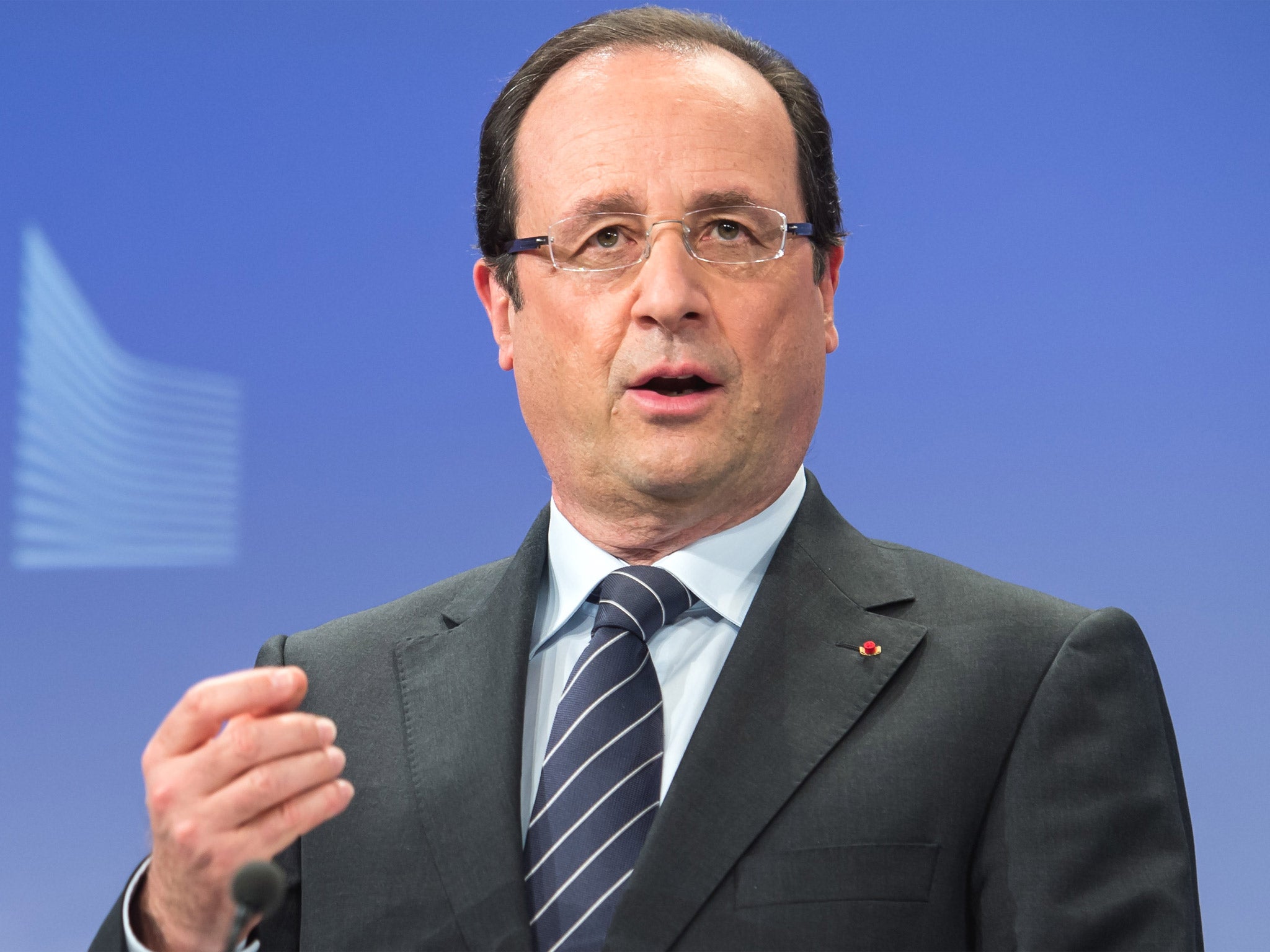An unhappy first anniversary for François Hollande as France hits the triple-dip
President says economic situation in France is ‘serious’ and eurozone provides little comfort

Your support helps us to tell the story
From reproductive rights to climate change to Big Tech, The Independent is on the ground when the story is developing. Whether it's investigating the financials of Elon Musk's pro-Trump PAC or producing our latest documentary, 'The A Word', which shines a light on the American women fighting for reproductive rights, we know how important it is to parse out the facts from the messaging.
At such a critical moment in US history, we need reporters on the ground. Your donation allows us to keep sending journalists to speak to both sides of the story.
The Independent is trusted by Americans across the entire political spectrum. And unlike many other quality news outlets, we choose not to lock Americans out of our reporting and analysis with paywalls. We believe quality journalism should be available to everyone, paid for by those who can afford it.
Your support makes all the difference.President François Hollande, who took office a year ago in a rain storm, was inundated with dismal economic news on his first anniversary when it was revealed that France dipped into recession for the third time in five years.
There was little comfort from the wider Eurozone either, where Germany crept back into growth in the first quarter of this year. The combined economic output of the Eurozone fell for a record sixth quarter in succession.
Mr Hollande said that the French economic situation was “serious” and called once again for concerted efforts within the European Union to kick-start growth.
The French finance minister, Pierre Moscovici, said that the GDP growth figure of minus 0.2 per cent was “not a surprise” and blamed the poor economic conditions in Europe as a whole. He called on France to “mobilise all our energy to create a more flexible, more competitive, more creative” economy.
There was no need, he insisted, to abandon the government’s prediction that growth would return by the end of the year and that unemployment (10.6 per cent) would begin to recede. However, the government statistical agency, INSEE said that all economic indicators in France now appeared to be on red.
“Overall production is stagnant, consumption is feeble, investment is declining, exports are falling,” the agency said. Another set of figures showed that spending power in France last year fell by a record 0.9 per cent.
In the Eurozone as a whole, the first quarter figures made equally grim reading. Germany managed to avoid a statistical recession by its finger tips – growing by 0.1 per cent in the first quarter of this year after a 0.7 per cent fall in late 2012. The Italian economy receded for the seventh quarter in a row, contracting by 0.5 per cent. Ecomomic experts said that the overall picture was of a European economy stagnant, rather than on the verge of a deep decline. However, commentators said that it was difficult to see what would break the pattern in the near future. Hopes that German growth might haul the rest of Europe from the mire are fading. Most EU governments are still committed to austerity policies. The US is also tightening its belt and access to bank loans remains difficult.
President Hollande is due to give a set-piece press conference at the Elysée Palace today – only the second since he took office a year ago. Before taking the train to Brussels for talks with the European Commission, Mr Hollande said that he would press for concerted efforts by all EU governments to rekindle growth.
He was elected a year ago on a similar pledge but has since largely failed to persuade the German chancellor, Angela Merkel, to focus on growth or to reduce the austerity efforts demanded of endebted Eurozone nations.
President Hollande, whose approval rating are in the low 20s, is under relentless fire in France for his muddle-through approach to economic recovery. He is criticised on the Right for increasing taxes and failing to take decisive steps to reduce labour costs. He is also attacked on the Left for pursuing a kind of “austerity light” programme of cuts in an attempt to reduce the French state budget deficit to under 3 per cent next year.
Despite the fact that he missed the Eurozone target of a 3 per cent deficit this year, the financial markets have continued to provide loans to the French government at record low interest rates. Economic observers have warned, however, that that could change rapidly – pluging France into a serious crisis – if the economic figures remain poor throughout the summer.
Join our commenting forum
Join thought-provoking conversations, follow other Independent readers and see their replies
Comments